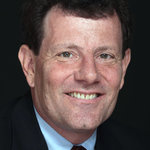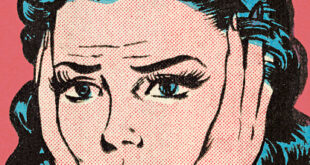Mindweapons in Ragnarok
May 8, 2014
I thought Nazis were bad, like drugs ‘r’ bad like Mr. M’kay says:
Nazis are bad, m’kay, if you’re a Nazi, you’re bad, M’kay? So don’t be bad, by being a Nazi, because that’d be bad, m’kay.
Except when the New York Times decides that some Nazis are good Nazis.
KIEV, Ukraine — For decades, Ukrainians have been starved, oppressed and bullied by Russians, and, with Russia now inciting instability that could lead to an invasion and dismemberment of eastern Ukraine, plenty of brave Ukrainians here say they’ve had it and are ready to go bear-hunting.
So Russians are animals to be killed. In the New York Times no less. By a so-called liberal humanitarian.
And the quote, For decades, Ukrainians have been starved, oppressed and bullied by Russians is utter, absolute, nonsense. Russians send them natural gas. Ukrainians go to Russia for jobs. I know Ukrainians. I’ve travelled there twice, hung out with my wife’s relatives over there. No one has a bad thing to say about Russians, except maybe some Western Ukrainian Nazis.
Nicholas Kristof is lying, and engaged in dehumanizing language that can lead to violence and even genocide. Bear hunting. I would never use the term “Jew hunting” or “Negro hunting,” or even “liberal hunting,” and I would not allow commenters to do so here either. There’s a “liberal hunting permit” out there. That would not be allowed to be posted here, as much as I hate liberals with a white hot hatred. We are too good to engage in joking about killing people as animals. Breeding like rats or rabbits, sure. But hunting? No way.
More Kristof:
Usually in international affairs, there’s a good deal of gray, but what is happening in Ukraine is pretty black and white.
In other words, the Russians are the absolute bad guys, and the Ukrainian Nazis are the absolute good guys. I guess the burning of 38 people in the Trades Union Building in Odessa was A-OK, eh Kristof? They bagged 38 bears! What a score!
So far, Putin has arguably gained from his bullying of Crimea
Bullying Crimea? They voted to join Russia with 82%, with 97% voting! That’s a landslide! There’s more democratic legitimacy in Crimea joining Russia than all the US government! What a fucking swine! This guy actually draws a paycheck from the New York Times? Unbelievable.
These people don’t have much, but they have heart. We should do more to back them up.
Heil Bandera! 82!
Putin has emerged as a great champion of the rights of Russian-speakers everywhere — except in the place where their rights are most endangered. That’s Russia itself.
–snip
So far, Putin has arguably gained from his bullying of Crimea: His standing in domestic polls has surged — his approval at home is roughly twice Obama’s — and he has outmaneuvered some local critics, leaving them appearing unpatriotic or on the side of the enemy. It’s crucial that Putin pay a price for aggression so that he doesn’t benefit from bellicosity.
So the rights of Russian speakers are endangered in Russia by Putin, but Putin enjoys twice the approval ratings of Obama? Kristof doesn’t question the legitimacy of these approval ratings; we can take them at face value.
These people don’t have much, but they have heart. We should do more to back them up.
May 6, 2014 |
As much as the coup regime in Ukraine and its supporters want to project an image of Western moderation, there is a “Dr. Strangelove” element that can’t stop the Nazism from popping up from time to time, like when the Peter Sellers character in the classic movie can’t keep his right arm from making a “Heil Hitler” salute.
This brutal Nazism surfaced again on Friday when right-wing toughs in Odessa attacked an encampment of ethnic Russian protesters driving them into a trade union building which was then set on fire with Molotov cocktails. As the building was engulfed in flames, some people who tried to flee were chased and beaten, while those trapped inside heard the Ukrainian nationalists liken them to black-and-red-striped potato beetles called Colorados, because those colors are used in pro-Russian ribbons.
“Burn, Colorado, burn” went the chant.
As the fire worsened, those dying inside were serenaded with the taunting singing of the Ukrainian national anthem. The building also was spray-painted with Swastika-like symbols and graffiti reading “Galician SS,” a reference to the Ukrainian nationalist army that fought alongside the German Nazi SS in World War II, killing Russians on the eastern front.
The death by fire of dozens of people in Odessa recalled a World War II incident in 1944 when elements of a Galician SS police regiment took part in the massacre of the Polish village of Huta Pieniacka, which had been a refuge for Jews and was protected by Russian and Polish partisans. Attacked by a mixed force of Ukrainian police and German soldiers on Feb. 28, hundreds of townspeople were massacred, including many locked in barns that were set ablaze.
The legacy of World War II – especially the bitter fight between Ukrainian nationalists from the west and ethnic Russians from the east seven decades ago – is never far from the surface in Ukrainian politics. One of the heroes celebrated during the Maidan protests in Kiev was Nazi collaborator Stepan Bandera, whose name was honored in many banners including one on a podium where Sen. John McCain voiced support for the uprising to oust elected President Viktor Yanukovych, whose political base was in eastern Ukraine.
During World War II, Bandera headed the Organization of Ukrainian Nationalists-B, a radical paramilitary movement that sought to transform Ukraine into a racially pure state. OUN-B took part in the expulsion and extermination of thousands of Jews and Poles.
Though most of the Maidan protesters in 2013-14 appeared motivated by anger over political corruption and by a desire to join the European Union, neo-Nazis made up a significant number. These storm troopers from the Right Sektor and Svoboda party decked out some of the occupied government buildings with Nazi insignias and even a Confederate battle flag, the universal symbol of white supremacy.
Then, as the protests turned violent from Feb. 20-22, the neo-Nazis surged to the forefront. Their well-trained militias, organized in 100-man brigades called “the hundreds,” led the final assaults against police and forced Yanukovych and many of his officials to flee for their lives.
In the days after the coup, as the neo-Nazi militias effectively controlled the government, European and U.S. diplomats scrambled to help the shaken parliament put together the semblance of a respectable regime, although four ministries, including national security, were awarded to the right-wing extremists in recognition of their crucial role in ousting Yanukovych.
Seeing No Nazis
Since February, virtually the entire U.S. news media has cooperated in the effort to play down the neo-Nazi role, dismissing any mention of this inconvenient truth as “Russian propaganda.” Stories in the U.S. media delicately step around the neo-Nazi reality by keeping out relevant context, such as the background of national security chief Andriy Parubiy, who founded the Social-National Party of Ukraine in 1991, blending radical Ukrainian nationalism with neo-Nazi symbols. Parubiy was commandant of the Maidan’s “self-defense forces.”
When the neo-Nazi factor is mentioned in the mainstream U.S. press, it is usually to dismiss it as nonsense, such as an April 20 column by New York Times columnist Nicholas Kristof who visited his ancestral home, the western Ukrainian town of Karapchiv, and portrayed its residents as the true voice of the Ukrainian people.
“To understand why Ukrainians are risking war with Russia to try to pluck themselves from Moscow’s grip, I came to this village where my father grew up,” he wrote. “Even here in the village, Ukrainians watch Russian television and loathe the propaganda portraying them as neo-Nazi thugs rampaging against Russian speakers.
“‘If you listen to them, we all carry assault rifles; we’re all beating people,’ Ilya Moskal, a history teacher, said contemptuously.”
In an April 17 column from Kiev, Kristof wrote that what the Ukrainians want is weapons from the West so they can to go “bear-hunting,” i.e. killing Russians. “People seem to feel a bit disappointed that the United States and Europe haven’t been more supportive, and they are humiliated that their own acting government hasn’t done more to confront Russian-backed militants. So, especially after a few drinks, people are ready to take down the Russian Army themselves.”
Kristof also repeated the U.S. “conventional wisdom” that the resistance to the coup regime among eastern Ukrainians was entirely the work of Russian President Vladimir Putin, who, Kristof wrote, “warns that Ukraine is on the brink of civil war. But the chaos in eastern cities is his own creation, in part by sending provocateurs across the border.”
However, when the New York Times finally sent two reporters to spend time with rebels from the east, they encountered an indigenous movement motivated by hostility to the Kiev regime and showing no signs of direction from Moscow. [See Consortiumnews.com’s “Another NYT ‘Sort of’ Retraction on Ukraine.”]
Beyond the journalistic risk of jumping to conclusions, Kristof, who fancies himself a great humanitarian, also should recognize that the clever depiction of human beings as animals, whether as “bears” or “Colorado beetles,” can have horrendous human consequences as is now apparent in Odessa.
The New York Times supported the Iraq war, and now they support Ukrainian Nazis “bear hunting” and burning people alive. They are war criminals. The “allies” hanged poor Julius Streicher for much less.
 Daily Stormer The Most Censored Publication in History
Daily Stormer The Most Censored Publication in History



